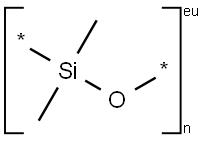General Description
Simethicone, a silicone compound, is utilized for alleviating flatulence and bloating, ameliorating the discomfort arising from excessive gas accumulation in the gastrointestinal tract. Its efficacy was confirmed by FDA approval in 1952. Over the years, research has explored its potential as a skin protectant and in the treatment of Helicobacter pylori.
Pharmaceutical Applications
Simethicone has garnered attention among endurance athletes for its potential in mitigating exercise-induced GI symptoms. Despite investigations into its efficacy for infantile colic, no significant benefits were found. Notably, simethicone is not indicated for conditions such as ileus, small bowel obstruction, or constipation. Careful consideration of alternative causes, including gallstones or heart disease, is prudent when employing simethicone.
Furthermore, manifestations like vomiting, hematochezia, and severe abdominal tenderness warrant thorough examination. Simethicone has also demonstrated safety and tolerability as part of a contrast agent, enhancing sonographic imaging in abdominal diagnostics.
Side effects
There is no report about serious side effects caused by Simethicone. There have been reports of mild diarrhea and nausea. Since simethicone is not absorbed orally, it is logical that systemic side effects such as kidney injury, hypertension, and hyperglycemia do not occur. Silicosis is a condition of pulmonary fibrosis caused by the inhalation of silica dust (also known as silicon dioxide). Still, there have been no reported cases of silicosis secondary to oral simethicone administration.
Safety
Simethicone is not absorbed systemically, so it is safe in pregnancy and breastfeeding. There is no treatment for a simethicone overdose other than stopping the medication.



